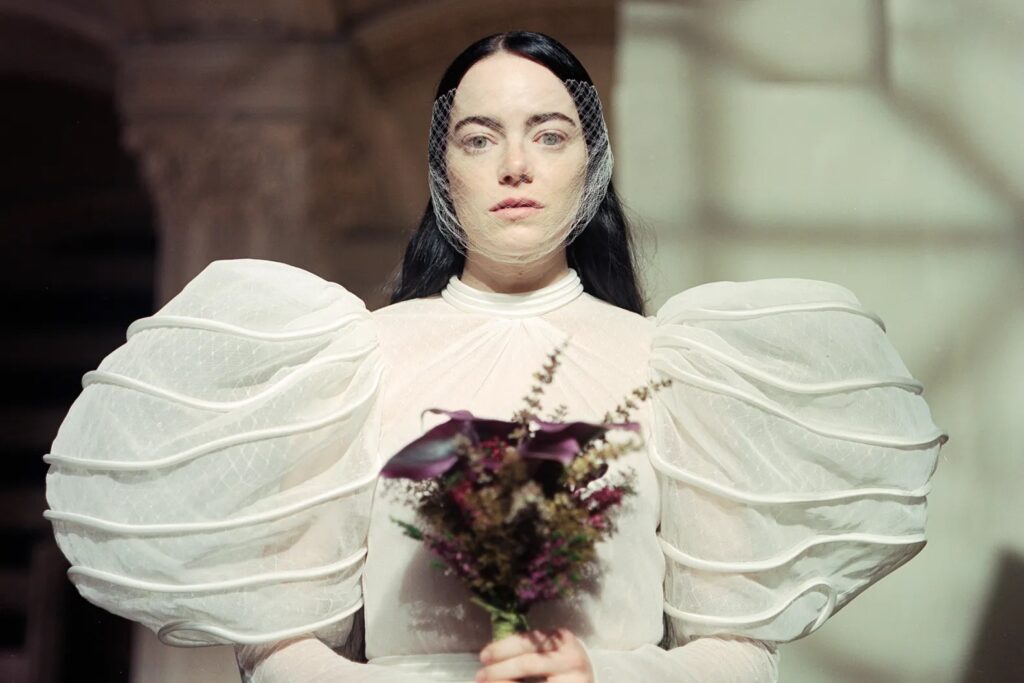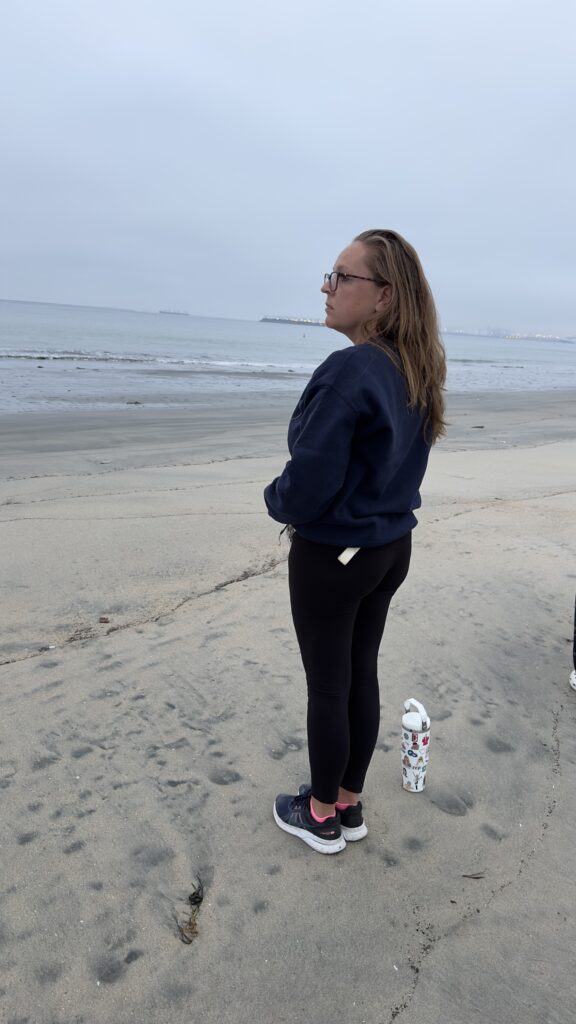I finally watched the movie Poor Things, and it turns out I like it a lot. Exploring adult themes in Poor Things made me appreciate it even more. I enjoyed it so much that I would gladly watch it again, especially now that I know what to expect. For example, I wouldn’t rewatch it while eating breakfast. My quiche didn’t taste quite right after watching brains get sliced up. You know? But aside from that, I really enjoyed the movie.
First, I have to say I really appreciate the artistry in Poor Things. Not only is the black-and-white cinematography beautiful in its simplicity, but it also plays an important role in the story. To me, the black-and-white scenes represent Bella as a caged animal, roaming her seemingly luxurious prison. Although everything appears fine on the surface, we quickly see her misery from being trapped. As her brain and body align, she becomes more in tune with herself. When exploring adult themes in Poor Things, you notice how the visual choices are part of the story’s deeper meaning.
Bella’s character arc is fascinating. We watch her grow from a baby into an adult, all while she’s in an adult body. As she experiences more of the world, she matures and evolves quickly. There are also significant breakthrough moments that stand out. For instance, when she discovers her clitoris. Many women can relate to discovering their own bodies and all the mysterious parts. Most of us didn’t do it at the kitchen table with an apple, offering to show the next passerby, but we understand. In this way, exploring adult themes in Poor Things makes it even more compelling to watch.
I’m sure certain scenes, like that one, made a lot of people uncomfortable. In fact, I know they did because I read plenty of Facebook comments from people who disliked the movie. Most people didn’t like it for the very reasons I loved it: sex, special needs, prostitution, and social status.
I didn’t expect the film to take on so many important issues. Yet it does so beautifully and in a way that keeps you captivated. Emma Stone’s performance blew me away. I love that the first time we see her playing the piano, her feet are propped up on it, just like a baby would do. Little details like that create a seamless narrative. At first glance, much of the film may seem weird, gross, or even illogical. However, there’s a lot of storytelling happening beneath the surface.
The title Poor Things also made me think. About halfway through the movie, Bella confronts the harsh realities of life for the underprivileged. She meets a man who shows her a place where babies are dying from lack of food and water. This moment strikes a chord with Bella. It feels like the first time she feels empathy or sadness for someone else. Perhaps this is when she stops being the selfish, childish brat she was earlier in the film. It also seems like this moment helps her grow up. She isn’t the same afterward.
While I’m not sure if she says the phrase “poor things” in that scene, it’s the first time I connected the title to the story. Additionally, I wondered who else society refers to as “poor things.” People with disabilities or special needs often come to mind. Essentially, this film tells the story of people who are broken and put back together. However, they’re never the same after.
Bella reminded me of my oldest daughter, Marie, who has Down Syndrome. The last time Marie got tested, she operated at around a 7- or 8-year-old level. I don’t know if she’ll grow from there as an adult. Nevertheless, watching this movie gave me hope. It shows that even people who don’t have all their faculties about them can still make decisions for themselves. They should have that right. Everyone deserves the right to make their own choices (a lesson I learned from my therapist).
As Marie’s mom, I struggled to understand that. I never fully accepted her Down Syndrome. As a result, it manifested in me as contempt, anger, and resentment. Lots of resentment. I didn’t think she could ever be normal, but I still tried to mold her into my version of normal anyway. Spoiler alert: that didn’t work. Bella, on the other hand, seemed to know something was off or different about her. It shaped her personality. At times, she even used it to her advantage. For example, when she needed money in Paris, she chose to start prostituting. That was her decision, and it was her right.
I appreciate how Poor Things addresses prostitution. While it highlights the dangers of sex work, it also shows how things could be done differently. But it also makes it clear why those changes may never work. For instance, when the Madam tells Bella that many customers prefer it when the sex worker doesn’t enjoy the sex, it struck me in a new way. Even though I knew that dynamic existed, hearing it in that light changed my perspective.
I understand why many people disliked Poor Things for the reasons I’ve mentioned. Still, writing about it has only made me love the movie more. Exploring adult themes in Poor Things challenges viewers, offering thought-provoking moments that make it beautiful and extraordinary art. Honestly, this blog post doesn’t even cover half of what I still want to say about the movie.
To see more of like this, visit my website here.


